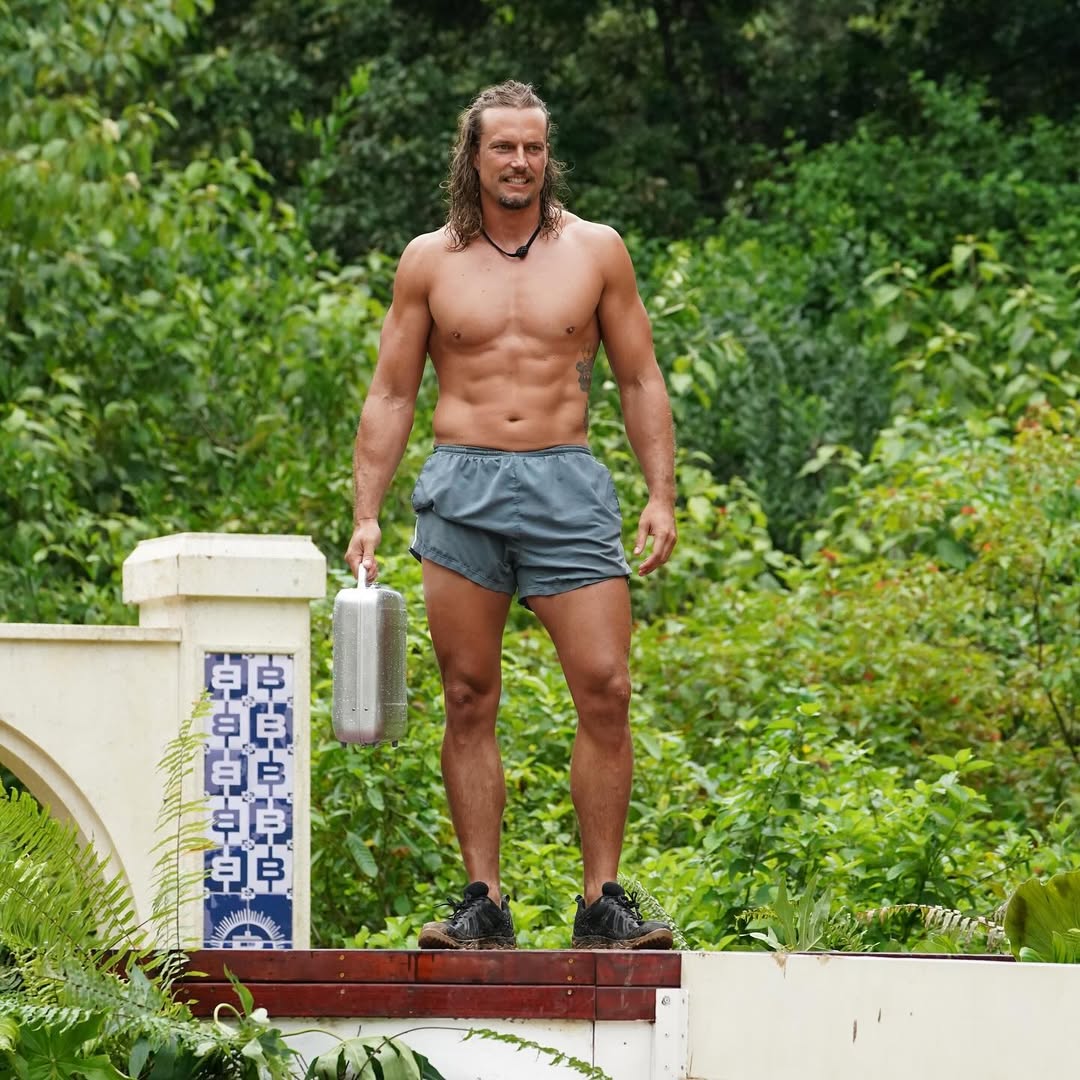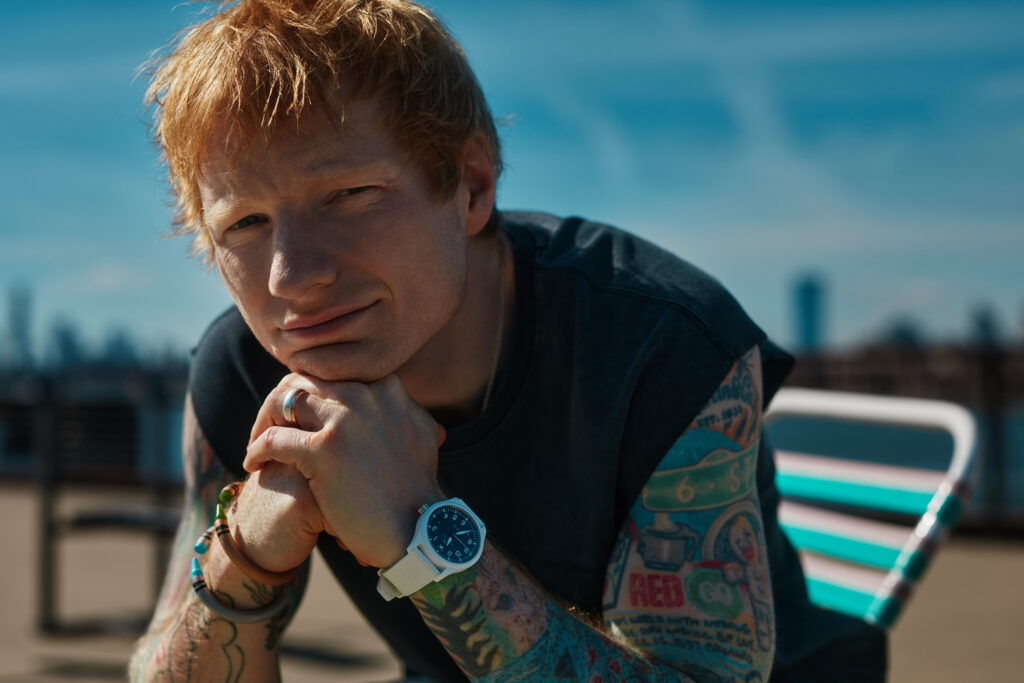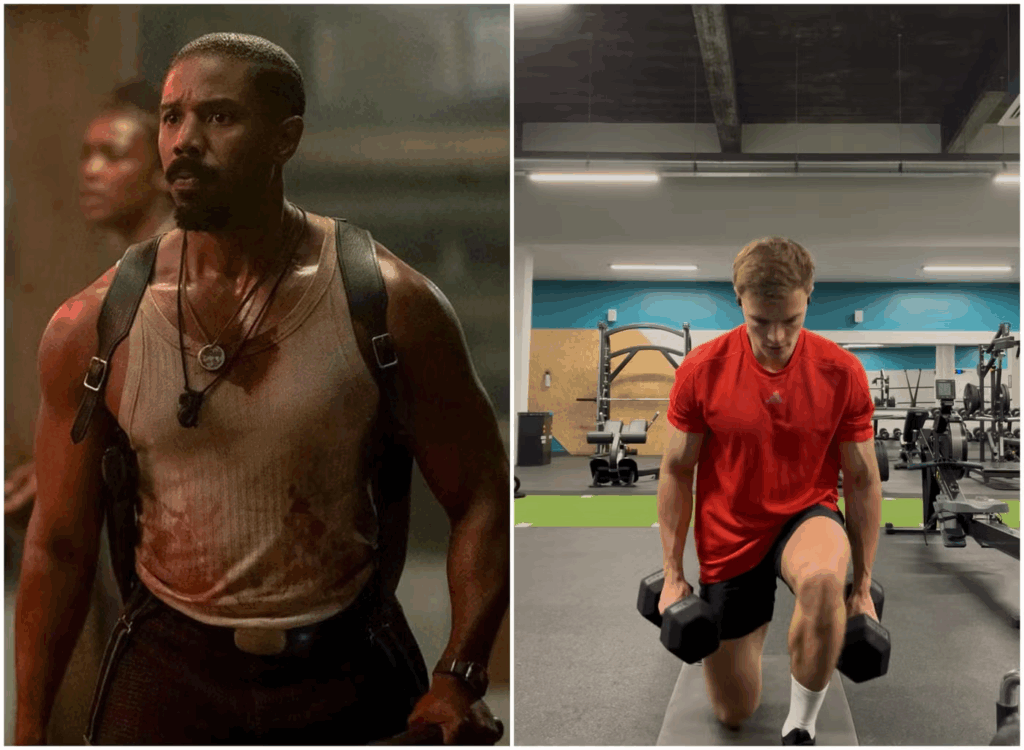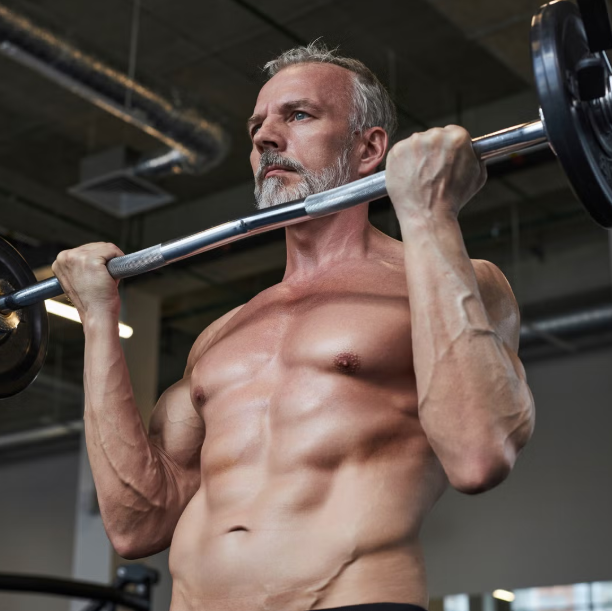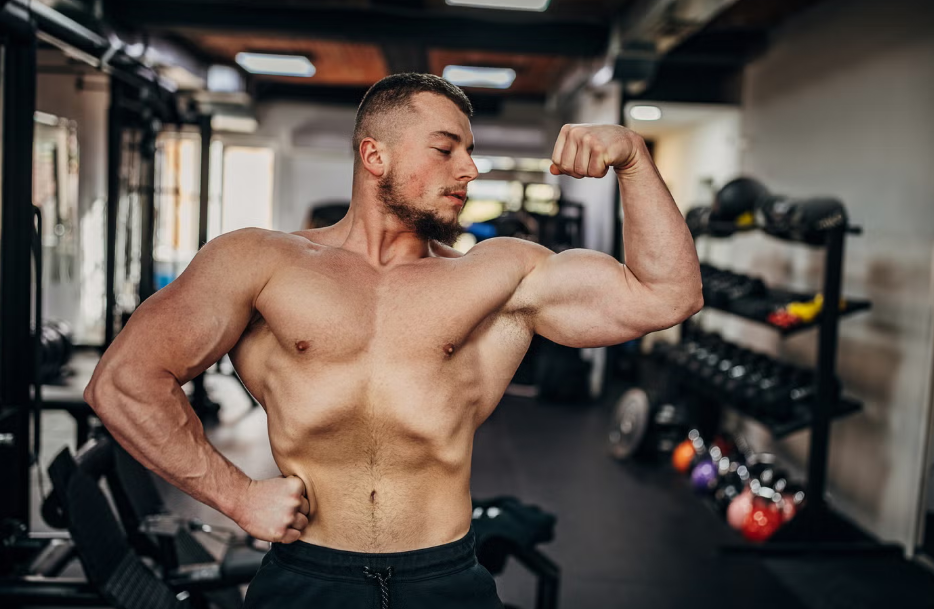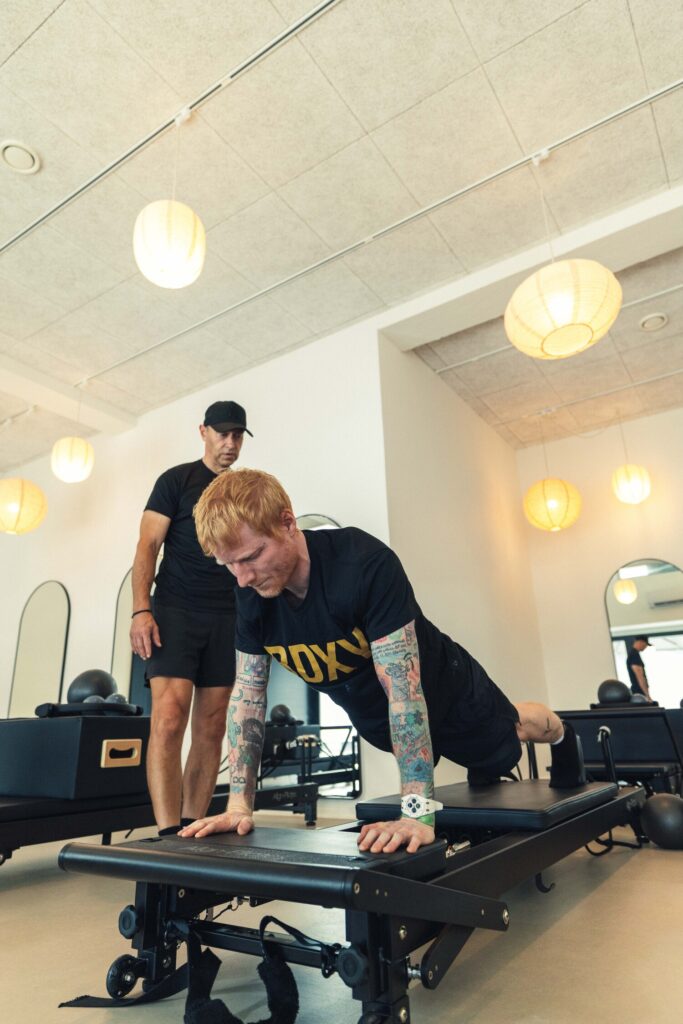WITH A two-decade-long modelling career and illustrious history as one of the best Survivor contestants of all time, 45-year-old David Genat is no stranger to the limelight. Now, he’s returned to Survivor for Australia V the World.
In this exclusive interview, David answers how he retains his chiselled physique, his love for jiu-jitsu, and why he absolutely does not count his calories.
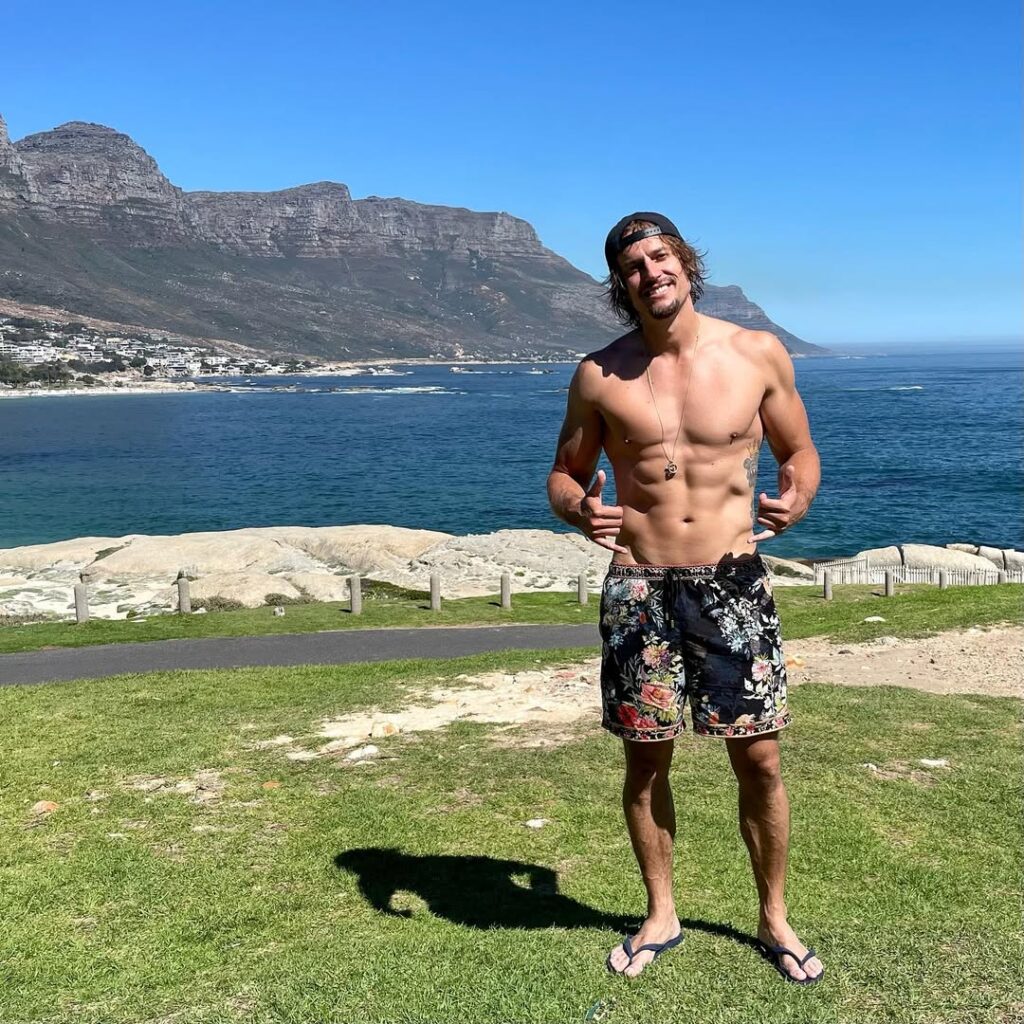
Men’s Health: You recently went vegan for a bit, what motivated you to do that and how was it?
David Genat: I did 10 days. I’ve been modelling for about 18 years, so I’ve tried literally every diet under the sun, except for going vegan. However, we recently had an activist come on the podcast, and whenever I meet someone that’s so passionate about something, it makes me want to check it out. So I thought, you know what? Let’s see what this is about.
The tough part is obviously finding that protein source. You have to eat so many lentils to get anywhere close to what you would get from like a whole food meat source or protein source. For me, not having eggs is tough, because I eat a lot of eggs. I mean, I know it can be done, people can do it. And I’m not sure if it’s just that I’ve eaten a certain way for so long that when I switched to vegan, I did feel a little bit flat. 10 days is nothing but I’ve also seen how much your body can change in 10 days.
MH: How much protein do you eat per day?
DG: For me, I’m doing about a gram and a half of protein per pound at the moment.
I weigh about 100 kilos, which I think is about 210-220 pounds. I really try hard to get as much protein as possible. For the most part, I like to get it from whole foods, and then I’ll supplement with a whey protein shake just to get that protein up because I eat a really protein-heavy diet.
MH: Do you only focus on protein? Or are you counting your macros and calories?
DG: I am categorically against calorie counting. I’ve obviously been through phases where I’ve been super into it, and I think the proof is in the pudding when it comes to losing weight. I mean, I saw that firsthand on Survivor. If you’re on a restricted-calorie diet, you will lose weight. There are no two ways about it.
But for me, the focus has always been on portions in terms of proteins, carbs, complex carbohydrates, and making sure that I’m really hitting those numbers. So for me, I think calories are a wasted statistic because I can get the same amount of calories from sugar as I can get from a steak, but it’s gonna hit my body completely differently. I think people get caught up in that minutiae of like, “oh, well, this is only 1000 calories”, but I just think nutrition-wise, you’re gonna get way more out of eating 1000 calories from a steak than you would from eating 1000 calories from a bag of Skittles. I think sometimes the calorie counting overshadows the actual nutritional side.
MH: What’s a day of eating look like for you?
DG: If I’m trying to cut weight or I want to be in shape or something, I’ll only eat protein and vegetables and drink coffee. I do intermittent fasting so I won’t start eating until noon. At noon, I’ll have something like three eggs, avocado, and some broccoli. Then I’ll try to get a salad in the afternoon with chicken breasts, like super lean chicken breasts, no dressing. And then at dinner, it’ll be like some kind of red meat. I avoid starchy carbs as much as possible. So I’ll have sweet potatoes, maybe a portion of rice, and then maybe a really clean whey protein shake with almond butter, banana, that kind of stuff.

MH: What about workouts?
DG: At the moment I’ll do about five days a week of weightlifting. I like supersets a lot, so I’ll peak a lift for the day with that. So, for example, on bench day, I’ll have my one main lift, which is a superset at the moment including a bench and a bent-over row. Then I’ll just do supplemental stuff and at the end of it.
I’ll also box once or twice a week if I can, and since being back in Australia, I started playing basketball. That’s basically my cardio there, I’m not a big cardio fan. I go through phases, you know, when you’re into exercise for so long, keeping it changing and doing different things is what keeps exercise interesting.
MH: Do you spar when you box?
DG: Yeah, a little bit, but I’m not like I’m a world-class boxer. I’ve been into martial arts for a long time. I have a black belt in Brazilian Jujitsu, which I got in New York under Henzo Gracie. From there, I got into Muay Thai. And then just as I’ve gotten a bit older, Muay Thai is pretty rough on your body, so I took up boxing.
MH: Which do you prefer, boxing or jiu-jitsu? Jiu-Jitsu seems more chess-like.
DG: I’ve heard the chess analogy before. And I would say only at the top levels is it like chess. If you get into a self-defence situation with a guy that trains jiu-jitsu, you’re done. If you put someone that trains against someone that doesn’t train, it’s like night and day, whereas with boxing, everyone can throw haymakers. They might not be as efficient, it might not land clean, but I think the true art of self-defence begins with jiu-jitsu.
Also, I don’t like getting punched in the face. With jiu-jitsu, it’s a real test because you can go 100 per cent against your training partner, and as long as you’re being careful, no one will really get hurt. You can always tap out when you’re uncomfortable. Or if you get put in a submission, you tap. And people respect that. But you can really test what that feels like. If you and I were going to box, we still probably wouldn’t be going 100 per cent. So how will we know who the better practitioner is, right?
Lorem ipsum dolor sit amet, consectetur adipiscing elit. Ut elit tellus, luctus nec ullamcorper mattis, pulvinar dapibus leo.
MH: You also mentioned that you have to keep your workouts fun. How have your workouts changed since you started modelling?
DG: When I first started modelling, I only cared about being skinny. And I was not a fat dude. But there was always a focus on me being skinny to fit clothes. It wasn’t until midway through my career that I decided I wanted to put some more muscle on and look a bit more like a man.
Then I came across Mark Rippetoe, who has a starting strength program. He did a seminar at a gym I went to in Brooklyn, and my wife actually went to learn his method. She said “you have got to try this.”
So I began investigating with weights. I think in the space of three months I put on, it’s gonna sound ridiculous, but I put on like 12 kilograms of muscle. And I think it’s just because I had never really lifted weights before and that programming was a very simple, linear program. I couldn’t believe how easy I’d gotten muscles.
As a man, I really believe we’re designed to lift heavy shit, for our endorphins, testosterone, and our mental health. And yet everyone’s in these sedentary jobs. Like myself now, we’re producing a series, and I’m in my office all day. You really begin to feel the effects of not being as physically active.





